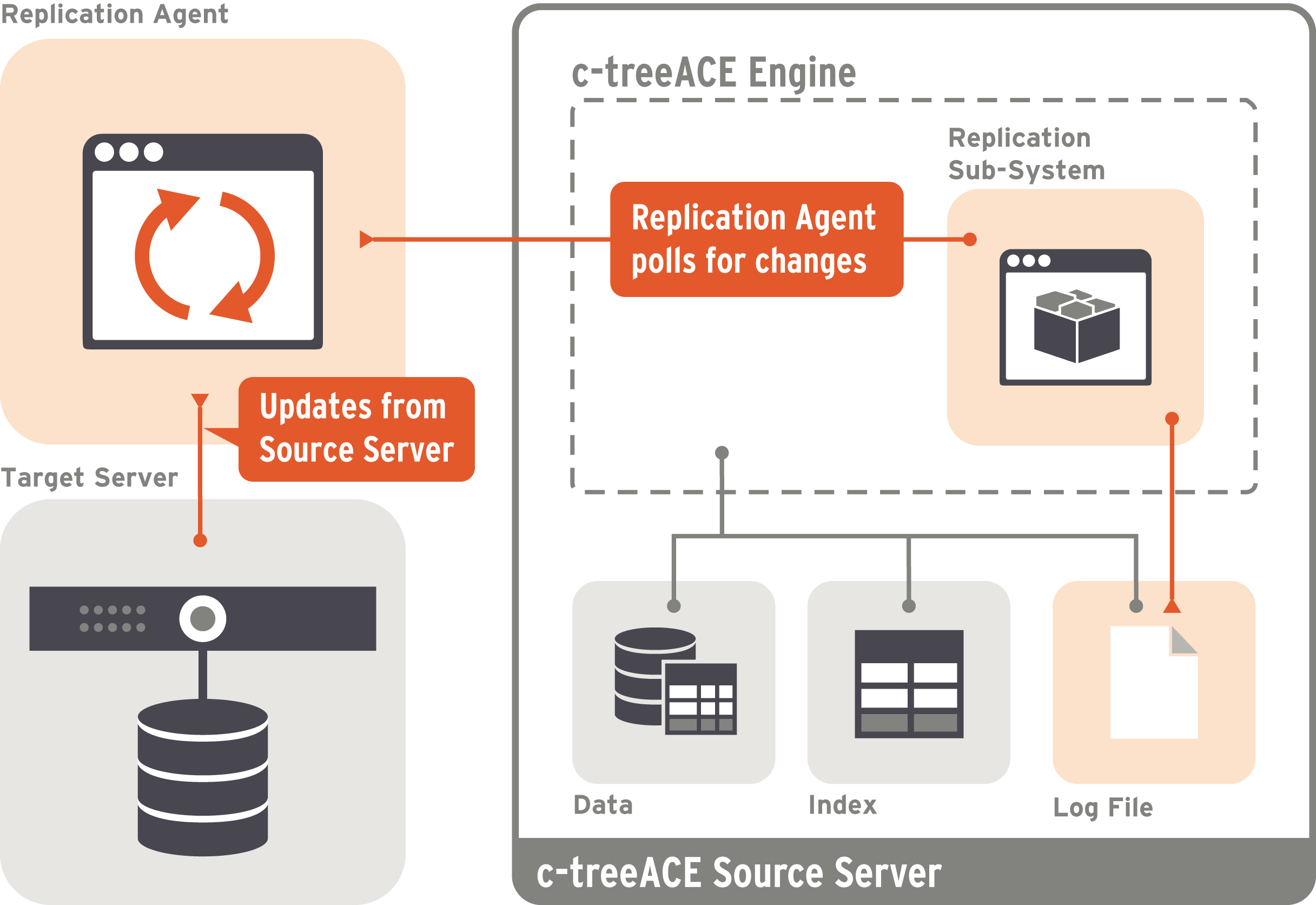The Replication Agent can now perform custom operations to handle special situations, such as data aggregation and conflict resolution.
FairCom's goal is to allow customers the greatest control over their database environment. Now, to provide a new level of flexibility and customization, we are adding Replication Agent support for User Defined Extensions.
By loading a user-defined external library, the Replication Agent can perform customized actions when processing operations read from the source server. This feature allows a software developer to customize the Replication Agent's behavior to support capabilities such as:
For example, if you need the ability to transform data during replication, a DLL could be written to perform that transformation during replication. Suppose you take a replicated server offline, perform a schema upgrade on it, and then resume replication. Because it now has a newer schema than the other replicated servers, the DLL could transform the data structure from the original server to the upgraded server.
Replication extensions can be used in conjunction with the new Hot Alter Table support for implementing application upgrades and schema changes with little or no downtime.

These extensions are provided in an external library that the Replication Agent loads on startup. When a user-defined extension library is used, the Replication Agent calls a function in the external library for each operation that it reads from the source server. The function can modify the operation values, or take custom actions, and it can indicate to the agent what action to take for that operation.
Initially, your extensions will be implemented within an SDK framework using a new set of user-defined functions. You will create a dynamic plug-in library containing your user-defined callback functions. The Replication Agent can then load this plug-in and execute the functions when appropriate.
With these replication callback routines, c-treeACE expands the possibilities of our replication solution to meet your exact needs. If you have a requirement that is not met by FairCom replication out-of-the-box, you may be able to write a custom DLL or shared object to meet your needs.
To use this feature, the developer needs access to c-treeACE Professional and to a development environment that supports writing and compiling C code into a DLL or shared library. Details about the user-defined functions are available separately in the Documentation section of the FairCom website.